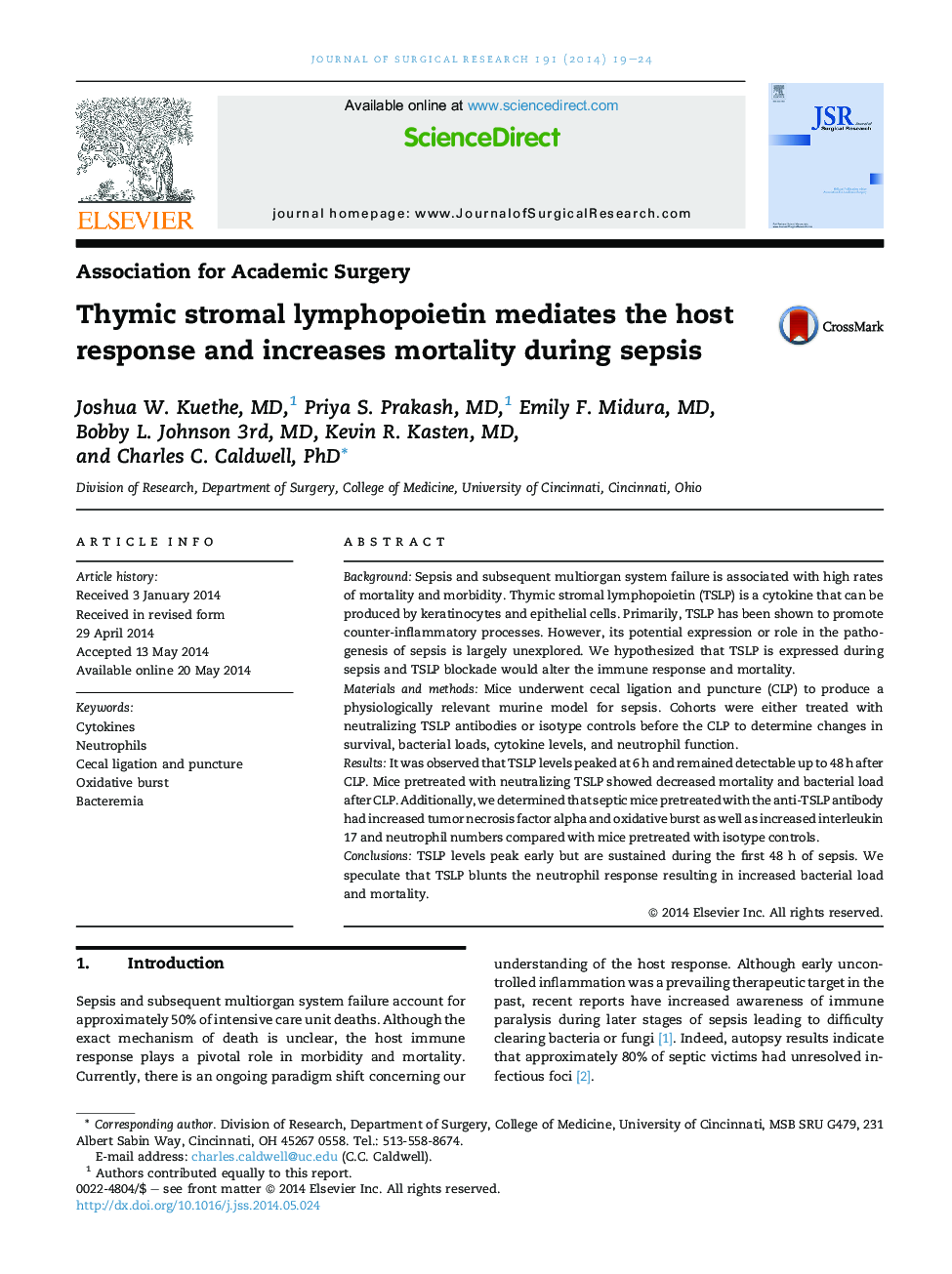| Article ID | Journal | Published Year | Pages | File Type |
|---|---|---|---|---|
| 6253823 | Journal of Surgical Research | 2014 | 6 Pages |
BackgroundSepsis and subsequent multiorgan system failure is associated with high rates of mortality and morbidity. Thymic stromal lymphopoietin (TSLP) is a cytokine that can be produced by keratinocytes and epithelial cells. Primarily, TSLP has been shown to promote counter-inflammatory processes. However, its potential expression or role in the pathogenesis of sepsis is largely unexplored. We hypothesized that TSLP is expressed during sepsis and TSLP blockade would alter the immune response and mortality.Materials and methodsMice underwent cecal ligation and puncture (CLP) to produce a physiologically relevant murine model for sepsis. Cohorts were either treated with neutralizing TSLP antibodies or isotype controls before the CLP to determine changes in survival, bacterial loads, cytokine levels, and neutrophil function.ResultsIt was observed that TSLP levels peaked at 6Â h and remained detectable up to 48Â h after CLP. Mice pretreated with neutralizing TSLP showed decreased mortality and bacterial load after CLP. Additionally, we determined that septic mice pretreated with the anti-TSLP antibody had increased tumor necrosis factor alpha and oxidative burst as well as increased interleukin 17 and neutrophil numbers compared with mice pretreated with isotype controls.ConclusionsTSLP levels peak early but are sustained during the first 48Â h of sepsis. We speculate that TSLP blunts the neutrophil response resulting in increased bacterial load and mortality.
